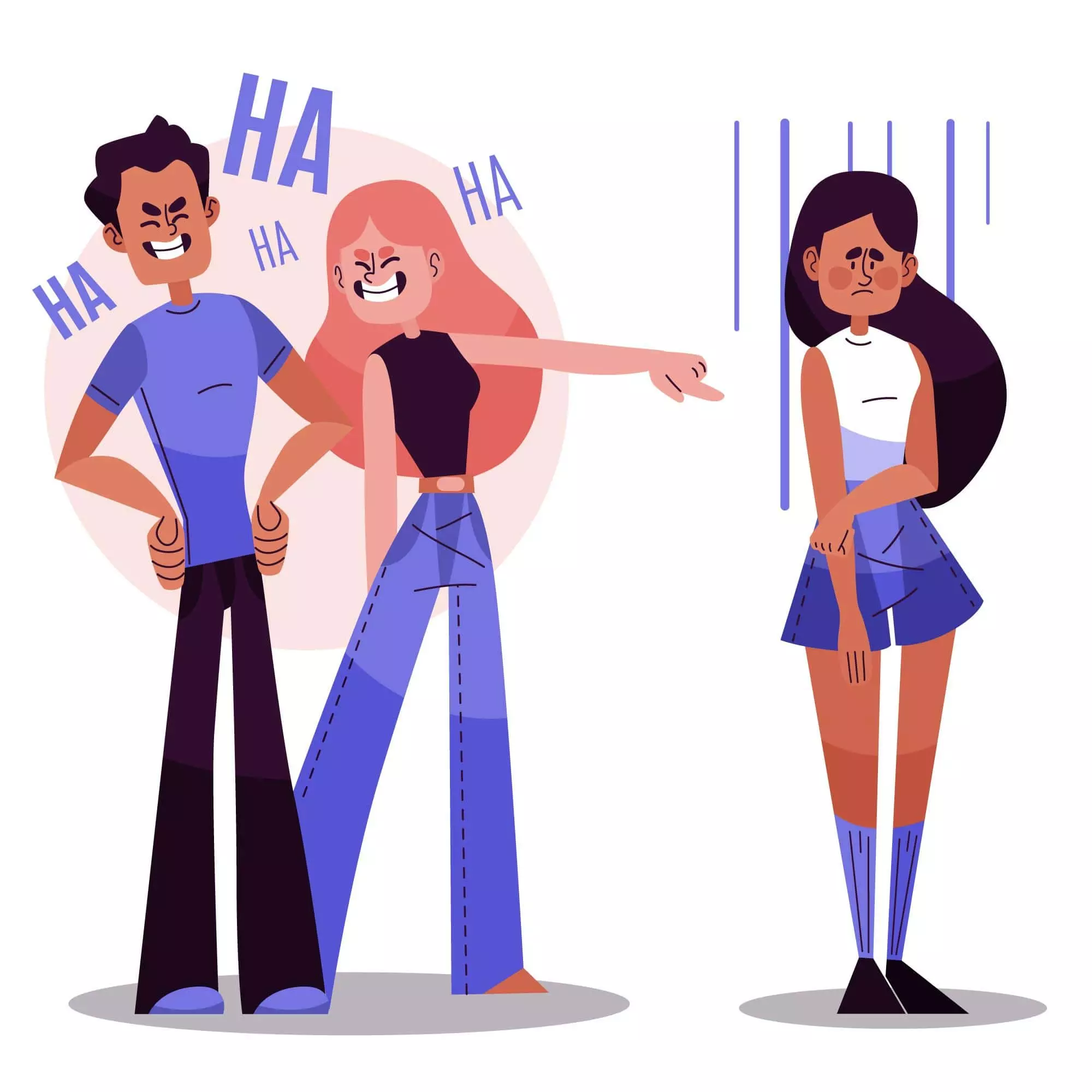How to Respond to Body Shaming? Your Body, Your Power
Body shaming! Many will relate to this term personally, while others will say, “Does it really exist?” The answer is YES. Body shaming is all too real. Just because it is not happening right in front of you, or you fail to notice its occurrence, doesn’t mean it’s not there. It is a toxic thing to deal with, and only the one facing it can understand the depth of its long-term effects, primarily negative. So, what is it, and how to respond to body shaming?
Who can deny the rising power and influence of social media nowadays? Browsing social media posts and commenting on your interested items is a great fun activity to pass the time. But skimming across videos and images also gives you an insight into body shaming, where those not having certain body features get mocked, trolled, or ignored altogether. How to respond to someone body shaming you? Why do people body shame? You can answer these questions and others by further exploring this topic by reading with us.
What is Body Shaming?
Body shaming involves dealing with negative or derogatory comments about your weight, size, or other body features from people who blindly judge by comparing you to their self-constructed body standards. This concept has become popular over time and is now rampant in our society. People don’t even spare their kids from body shaming. You can stop body shaming from happening by actively learning about it to tackle it head-on for yourself, or to defend others from experiencing it.
How Much Does Body Shaming Affect Society Statistics?
You can easily learn how to respond to body shaming as it has become a common phenomenon. The tackling tips have become readily available too. The immense amount of body shaming society statistics speak for themselves. Take the US and UK for examples.
- A British mental health website, conducted online surveys with YouGov of about more than 4000 UK adults (18+ years) and over 1000 UK teenagers (from 13 to 19). The results were astonishing. Since the last year, about 1 in 5 Adults (20%) felt shame, more than 1/3rd felt down, and about 19% felt disgusted by their body image. These are the adult facts. Among teenagers, about 37% felt worried, and 31% felt ashamed about their body image. Similarly, they got the stats for images on social media causing body image worry to UK adults and teenagers. These amounted to over 1 in 5 adults (22%) and 40% teenagers.

- Let’s go check out the American research conducted by a nonprofit organization that reviews media content targeted at kids, called the Common Sense Media. Even before turning 7 years, can you imagine 1 out of 4 children had already dieted? And a staggering 80% of American girls aged 10 had started dieting over fears about their looks. But girls are not the only ones being influenced by this diet craze. This study indicates that 1/3rd of boys and girls aged six to eight wish thinner bodies than they have.
| DID YOU KNOW? |
| Body shaming statistics globally are alarming and intense in their results. No gender is safe from it. An Obesity Action Coalition Survey reported that 58% high school boys and 63% high school girls faced bullying about their bodies’ shape or size regularly, just due to the fact that they were medically classified as overweight. |
Types of Body Shaming
Famously, you might have heard about weight or size shaming. But these are not the only types. Other types of body shaming exist worldwide that shed light on why do people body shame.
1. Weight
The most commonly found body shaming is weight shaming. People are generally shamed regarding their weight as being overweight or underweight than average standards. Similarly, mocking or ridiculing someone because they are FAT is also body shaming, called “fat-shaming.” Those who fat-shame or weight-shame someone believes they are trying to motivate the next person to shed some weight or become trimmer. But it typically has the opposite effect as, according to a trusted source, fat shaming makes people sicker and heavier.

Those who weight-shame don’t care if you are this way due to health issues or internal mental struggle. Remember! People with thinner bodies also get weight-shamed, often called skinny-shaming. An example can be, “You look like you have never eaten a whole meal in your life.”
2. Body Hair
Body hair usually grows on all people’s arms, legs, private areas, and underarms. Exceptions include certain health conditions, sometimes causing facial hair growth in women. Many people don’t consider women “ladylike” if they have more than normal hair growth on their faces or exposed areas. Men are not safe, either. A male unable to grow a mustache or a beard is sometimes termed “girly-like.” An example of body hair shaming is urging a woman she needs to shave her facial hair to look attractive.
3. Attractiveness
Even if you are termed pretty-looking by normal standards, you might still want to learn how to respond to body shaming. As you may also get body shamed, also known as pretty-shaming. You can define it as people bullying or discriminating against someone for being attractive, and it is much more common than you think. In contrast to pretty shaming, you get lookism, where people are bullied for appearing unattractive or who fall short of societal ideas of beauty.
Examples include when attractive women are typically skipped during hiring for positions of authority. People say even to your face when they realize you are intelligent, not just a pretty face, “Oh, I thought you would be an airhead!” People considered less beautiful may get discriminated against when applying for jobs, as a lookism example.
4. Food
Food shaming comes within the concept of body shaming easily, as it is mainly done about your body size. How to respond to someone body shaming you when it comes to your food intake? Imagine skipping breakfast and running on coffee fumes all day as a working woman.

At the end of the day, you decide to treat yourself to a hearty, healthy meal at a restaurant or at home. You are savoring the food when you hear a criticizing voice, ”A woman should not eat that much.” This is food shaming. I am sure you will lose all your appetite, ruining your good mood. The critics may include your spouse, some passerby, or a friend sharing your food table.
5. Complexion
Why do people body shame? Inherent values and beliefs contribute much to it. In South Asian culture, for example, people get body shamed based on their facial or body complexion.

A peaches and cream complexion is highly coveted and appreciated, while girls and boys with a dusky or dark complexion are bullied, ridiculed, or ignored in mainstream society. Can you imagine? Your complexion becomes a class or cultural divide, deciding for you whether you get the best suitable marriage match or not.
Some other body shaming types relate to your height, age, hair texture, and clothing preferences.
How Did Lady Gaga Respond to the Body Shaming?
Who hasn’t heard of Lady Gaga? A leading American singer, songwriter, actress, and performance artist known for her inspiring fashion choices. An icon among celebrities. Her first popular song was ‘Just Dance,’ released in 2009. You can learn about how to respond to body shaming from Lady Gaga, as she artfully dealt with body-shaming haters. It happened after her spectacular performance at the 2017 Super Bowl halftime. We can all learn from Lady Gaga concerning how to stop body shaming in our surroundings. She was quoted on Instagram with these words;
| “I heard my body is a topic of conversation, so I wanted to say, I’m proud of my body, and you should be proud of yours too. No matter who you are or what you do. I could give you a million reasons why you don’t need to cater to anyone or anything to succeed. Be you, and be relentlessly you. That’s the stuff of champions. Thank you so much, everyone for supporting me. I love you guys. Xoxo, gaga”
Source: Instagram |
Can Body Shaming be Outlawed?
This debate has been raging globally for decades since awareness has spread about the harmful effects of body shaming. In recent years, outlawing body shaming has become a prominent demand worldwide. This demand has been recently met by New York in the latest development.
On Thursday, 11 May 2023, a historic bill was passed by the New York City Council that makes discriminating against height and weight illegal in the fields of housing, employment, and public accommodations. 6 other American cities and one state have joined this mission to stop body shaming among its citizens against weight and height. Other countries need to follow America’s example to fight against body shaming.
Wrapping Up
Being body-shamed might feel like the end of the world for you. But it is not. The trick is to know how to respond to body shaming. The answer is to kill with kindness and excessive politeness. Never let anybody body-shame you or any other person in front of you, but you should also self-evaluate whether you are sitting on a ticking time bomb, for example, being obese health-wise. The trick is to keep your health and self-esteem in a delicate balance. Ignore body shamers while maintaining a critical eye on yourself to decide, “Am I being healthy enough?”
Remember! Body shaming is a vicious cycle. Never forward hate or bullying if you were body shamed in your life by body shaming others. Stand for respecting yourself and other people. Be the positive change in the quest to stop body shaming altogether.
FAQs
What should we learn from body shaming?
Ans: We learn many things from body shaming, such as;
- Always speak positively about your body and notice others’ good qualities.
- Speak up to stop body shaming.
- Try to be more inclusive in your approach to others.
- Learn about body neutrality and body positivity.
- Have self-respect for yourself and your body.
- If your doubts about your body image persist depressingly, consider therapy without hesitation or shame.
What is the movement about body shaming?
Ans: The movement about body shaming is called the positivity movement, which embraces different views by departing from the dominant societal ideals of beauty and body shape. You should not mix it with body neutrality. It goes for inclusivity, making BEAUTY a much more extensive term. Additionally, it promotes the acceptance of different bodies and appreciation of their differences.
What are the worst effects of body shaming?
Ans: Body shaming has many worse effects on a person’s psyche. The leading is mental health issues, including;
- Eating disorders
- Depression
- A higher risk of self-harm or suicide
- Anxiety
- Low self-esteem
- Body dysmorphia disorder
- Hating your body generally

